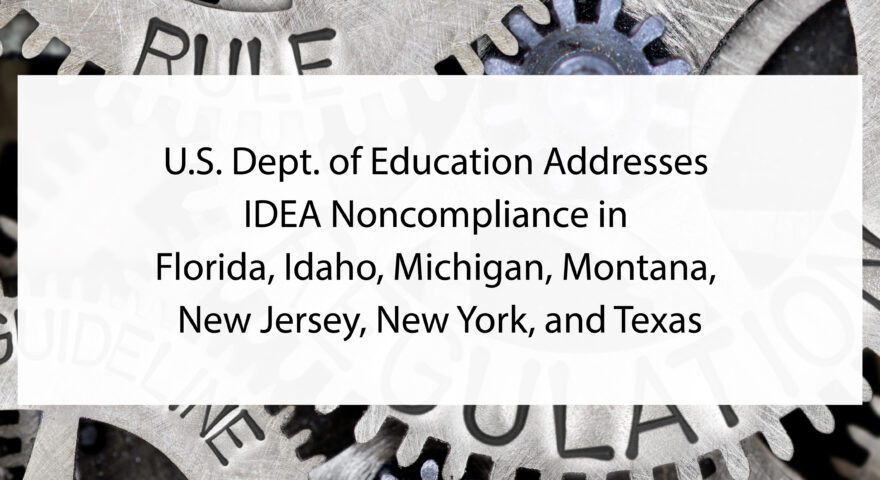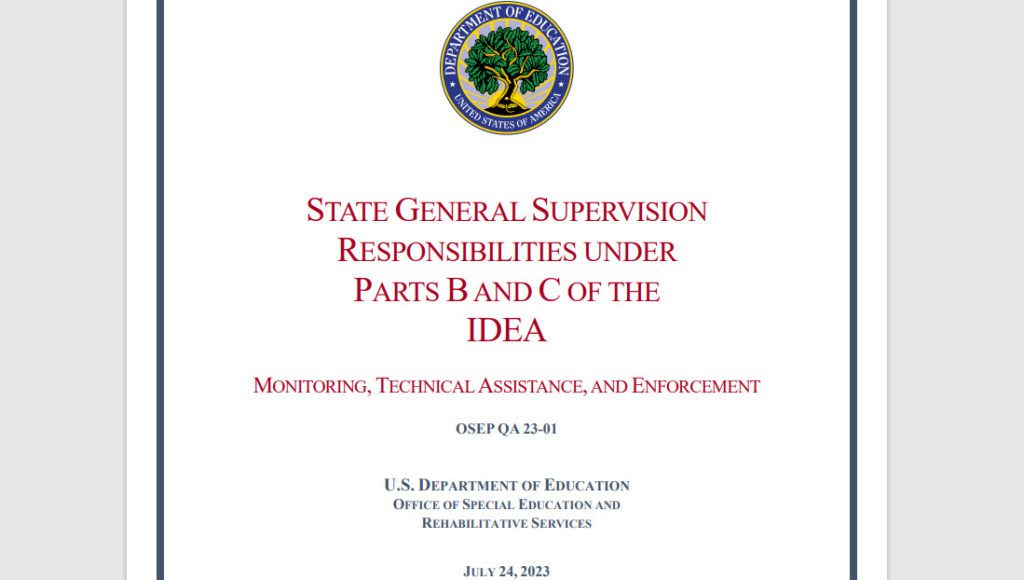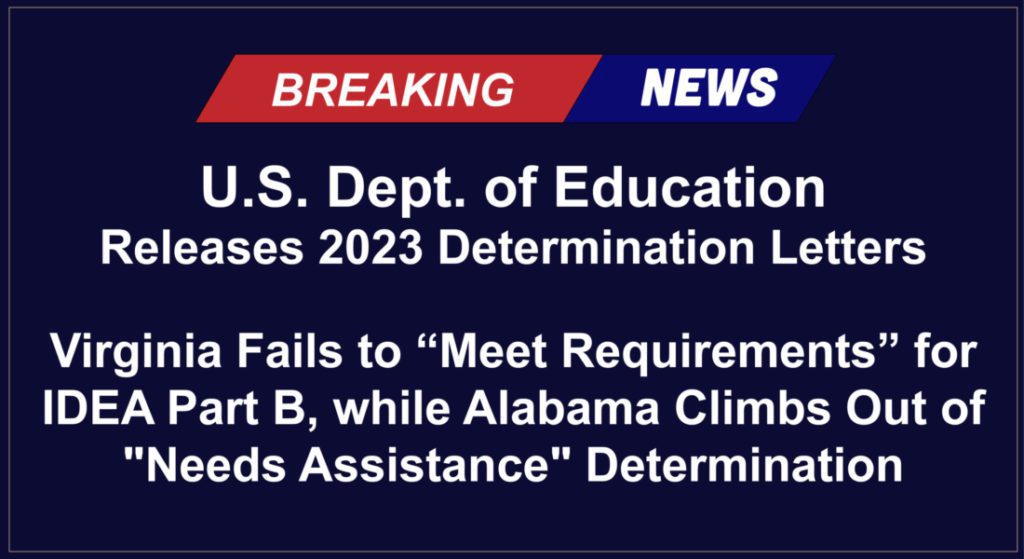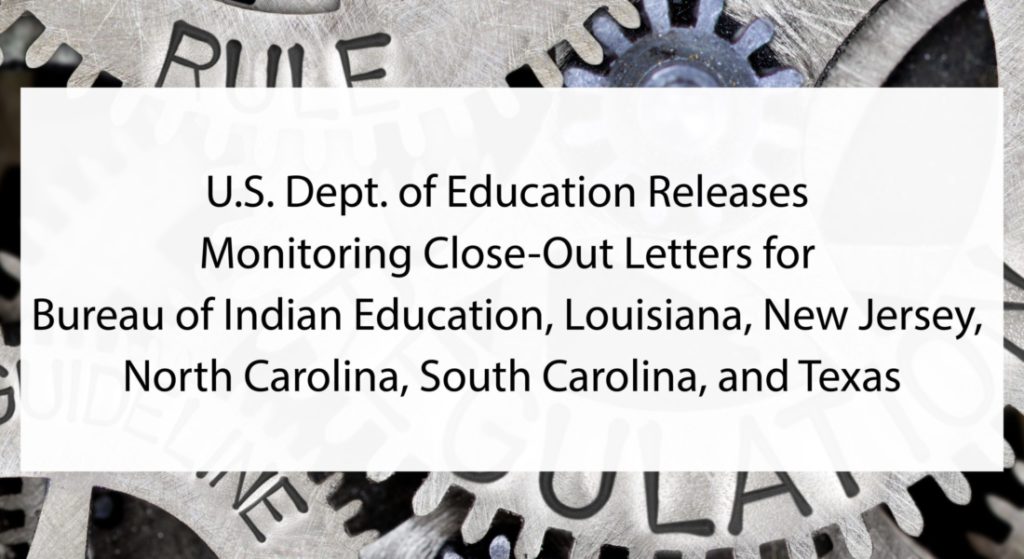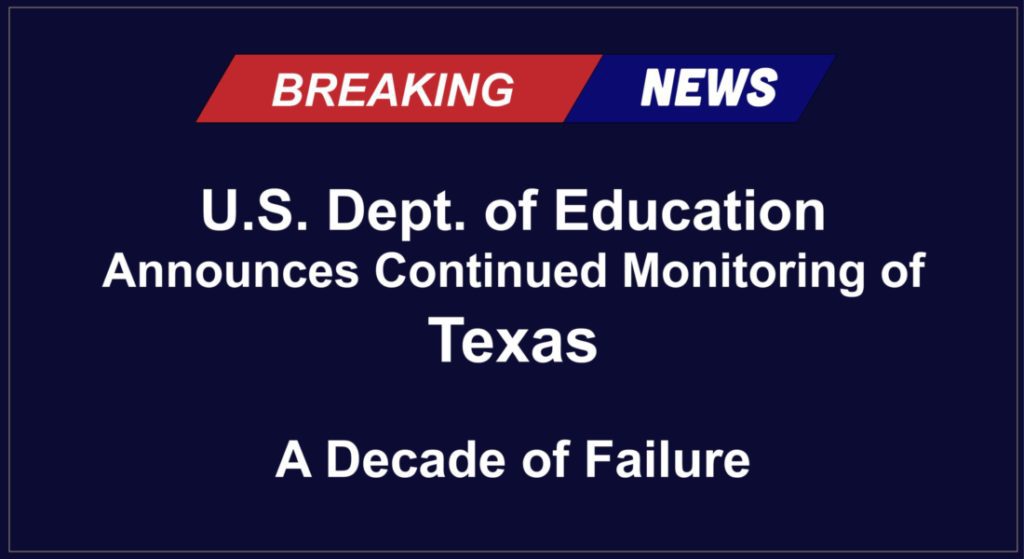Going Local: Texas
U.S. Dept. of Education Addresses IDEA Noncompliance in Florida, Idaho, Michigan, Montana, New Jersey, New York, and Texas
OSEP monitors all IDEA Part C and B programs through its DMS system and “differentiates its approach for each state based on the state’s unique strengths, progress, challenges, and needs.” This cyclical monitoring process focuses on states’ general supervision systems. OSEP will continue to provide support and technical assistance that is differentiated based on each state’s needs.
U.S. Department of Education Releases Updated Policy Guidance to Ensure Access to Rights Guaranteed to Children Under IDEA
According to OSEP, “The guidance and accompanying Dear Colleague Letter address the IDEA’s “general supervision” requirement, which necessitates states monitor local educational agencies (LEAs) as required by IDEA Part B, and early intervention service (EIS) programs and providers as required by IDEA Part C to ensure children with disabilities and their families access their rights under IDEA.”
This guidance is significant in that it focuses on general supervisory responsibilities. Refusing to address noncompliance outside the typical dispute resolution channels of mediation, state complaints, and/or due process hearings, has long been a problem for states like Virginia, as one example.
U.S. Dept. of Education Releases 2023 Determination Letters; Virginia Failed to Meet Requirements, While States Like Alabama Climbed Out of Years of “Needs Assistance” Determinations
While a few states improved their performance, others continued to fail.
In 2023, 23 states or entities met requirements, as compared to 22 in 2022; six states need assistance (one year) in 2023, compared to 3 in 2022; 29 need assistance (two or more consecutive years) in 2023, compared to 35 in 2022; and two states need intervention in 2023, compared to zero in 2022.
U.S. Dept. of Education Releases Monitoring Close-Out Letters for Bureau of Indian Affairs, Louisiana, New Jersey, North Carolina, South Carolina, and Texas
The letters were issued between 2021 and May 2023, however OSEP waited until the past two months to publicly release them on USDOE’s website.
They detail years of monitoring, corrective actions required by OSEP, continued noncompliance, and the states eventually satisfying the action required by OSEP. However, in states like North Carolina and Texas there are a few caveats. caveats.
Seven Years and Millions of Children Later, U.S. Dept. of Education Announces Continued Monitoring of Texas
U.S. Department of Education Office of Special Education Programs announced it will continue its years-long monitoring of Texas Education Agency.
May 4, 2023, OSEP Director Valerie Williams issued a letter to TEA Commissioner Mike Morath, stating OSEP discovered TEA has been investigating Austin Independent School District for more than a year, “due to the district’s years-long backlog of special education evaluations, as required by the child find and evaluations requirements (34 C.F.R. §§ 300.301-306).”
The content of OSEP’s May 4, 2023, letter isn’t a surprise, although the letter being listed as a “DMS Close-out Letter” is an eyebrow raiser. TEA has a long history of failing to address the unique needs of children and providing them a free appropriate public education.
Texas and Virginia: Too Big to Fail
Texas is toward the top of the list of U.S. states when it comes to federal, state, and local revenue, but Virginia has Fairfax County, a school district with one of the largest budgets and per pupil spending in the United States.
And yet . . . They’ve both failed.
In the case of Texas, the United States Department of Education’s (USDOE) Office of Special Education Programs (OSEP) just announced that USDOE will be reducing funds provided to Texas and putting specific conditions in place.
Will OSEP follow with Virginia?
